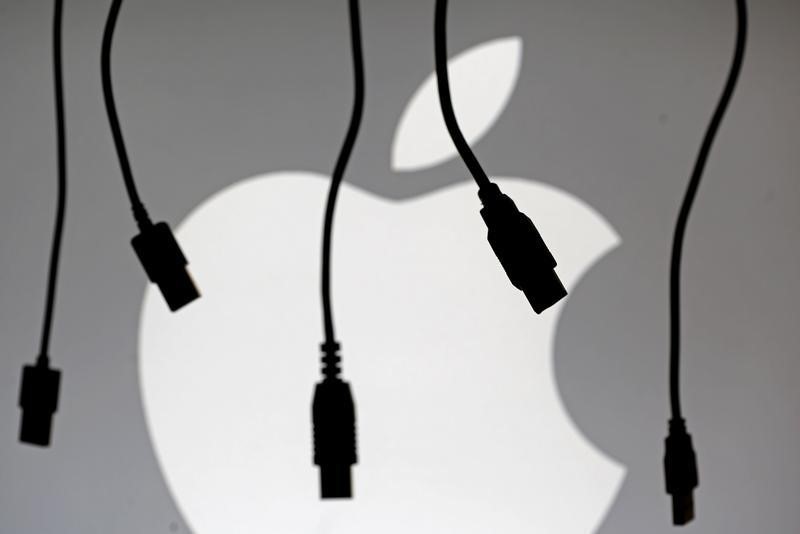HSBC downgrades Bloom Energy after significant rally
Investing.com -- Apple (NASDAQ:AAPL) is unlikely to receive a targeted tariff exemption under the current U.S. trade framework, according to Morgan Stanley (NYSE:MS). The Wall Street giant estimates the odds of this happening at just 20%, citing a different legal pathway for the latest round of tariffs.
Unlike in 2018, when companies could request exclusions under a formal process, the new measures are implemented via the International Emergency Economic Powers Act, which doesn’t include a mechanism for exemption requests.
“For Apple to receive an exemption, it would have to be a company (or product, i.e. smartphone) specific exemption granted specifically by the President,” analysts led by Erik W. Woodring said.
Despite Apple’s announcement of a $500 billion U.S. investment over four years, analysts believe this is unlikely to influence policy decisions.
They pointed out that Apple has made similar spending pledges in the past, and that almost all of its product manufacturing still takes place overseas. “More significant direct manufacturing commitments in the U.S. would be required to get special treatment, and we see this as unlikely,” analysts said.
According to their estimates, tariffs may weigh heavily on Apple’s margins.
Morgan Stanley forecasts the company could face up to $33 billion in annual incremental costs if no mitigation is implemented. That would represent a 26% hit to earnings per share (EPS), although the firm thinks the actual impact could be lower.
Apple may pressure suppliers to absorb some of the cost, pull forward production, or raise prices globally. This suggests that instead of a 26% EPS headwind, the bear case hit to consensus earnings could be around 10-15%, analysts said.
That implies Apple’s EPS could fall to $7.19, signaling a share price floor near $172 based on a 24x multiple—close to Morgan Stanley’s $168 bear case valuation.
The latest tariff announcement triggered steep losses across the hardware sector. Twelve of the 19 companies under Morgan Stanley’s coverage fell more than 10%, with only one stock declining less than 7%. Analysts said they were not surprised by the widespread drawdown given the scope of the measures, though some moves were unexpected.
Disk drive makers, for instance, underperformed despite limited direct tariff exposure, suggesting the market may be pricing in a broader cyclical downturn in storage demand.
Still, the firm does not believe now is the time to buy the dip in hardware stocks. “It’s just far too early to gain conviction we’ve seen the end of the pain trade lower,” analysts said, pointing to historical trough multiples and the likelihood of further earnings downgrades.
“We believe consensus earnings have to be revised lower before considering buying the dip,” they added.
